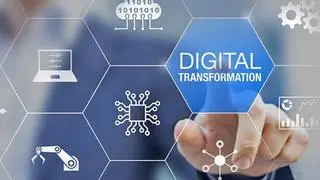As Donald Trump assumes office, the Indian IT industry has adopted a wait and watch approach, given that one of Trump’s major priorities in his first 100 days in office is to direct the Department of Labor to investigate all abuses of visa programmes that undercut the American worker.
Over 60 per cent of the Indian IT industry’s $108-billion export revenue comes from the US. Infosys has adopted a ‘visa-independent’ strategy and continues to focus on local hiring in the US. Of its 1,99,763-strong workforce, 20,000 are located in the US which contributes to 62 per cent of Infosys’ revenue.
“We are closely monitoring the developments related to the US visa legislative proposals. Irrespective of the legislative environment, we continue to hire and invest locally. However, given the skill shortages in the US and the availability of technically skilled workforce in various global markets, we also rely upon visa programmes to supplement these skills” said Pravin Rao, COO, Infosys Ltd, in a statement.
“For the long term, we are also exploring new operating models to ensure business continuity as we navigate this dynamic environment. This includes reducing our visa dependency and efforts towards making Infosys a preferred employer in the US,” he said.
According to the US Department of Labor statistics, the US will see nearly 2.4 million unfilled STEM jobs by 2018. STEM jobs are those requiring a Science, Technology, Engineering or Math-related degree. Over 50 per cent of those unfilled jobs are expected to be in the area of Information Technology.
Partha De Sarkar, Global CEO of Hinduja Global Solutions Ltd (HGS), a BPM firm, expects the US to continue to consider India as a key partner in the new regime.
“The US has been a key market and partner of the Indian IT/BPM industry and HGS expects this to continue in the future too. We would like to call out that HGS has significant onshore operations in the US, with nine delivery centres employing over 3,000 locals supporting US-based clients.”
Cognizant, Wipro and HCL refrained from commenting on the implications of Trump’s Presidency to the Indian IT industry saying they were in the silent period before announcing results. TCS said it would prefer to wait and watch before commenting.
While the IT industry is concerned about an impending H1B wage hike in the short term, in the long term it is also aware that shortage of skilled engineers in the US would increase its dependence on skilled Indian engineers.
As Shivendra Singh, VP – Global Trade Development, Nasscom, pointed out, “The Indian IT industry has been a net creator of 4,11,000 direct and indirect jobs in the US and has paid $20 billion in taxes there over the last 4 years. The industry works with over 75 per cent of the Fortune 500 companies in the US making them more competitive. We will continue to increase our value proposition to the US.”
Stating that Trump understands business being a businessman himself, Singh said, “he has talked about India as a friend. During his tenure we look forward to achieving bilateral trade of $500 billion between the two nations, up from $100 billion at present, with Indian technology companies contributing and making a making a big impact toward achieving it.”
Nasscom will continue to lobby with the US administration to remove discriminatory regulations such as the doubling of H1B and L1 Visa fees.
A Nasscom delegation will be visiting the US in February/March to meet the new administration and discuss the various issues with them.







Comments
Comments have to be in English, and in full sentences. They cannot be abusive or personal. Please abide by our community guidelines for posting your comments.
We have migrated to a new commenting platform. If you are already a registered user of TheHindu Businessline and logged in, you may continue to engage with our articles. If you do not have an account please register and login to post comments. Users can access their older comments by logging into their accounts on Vuukle.